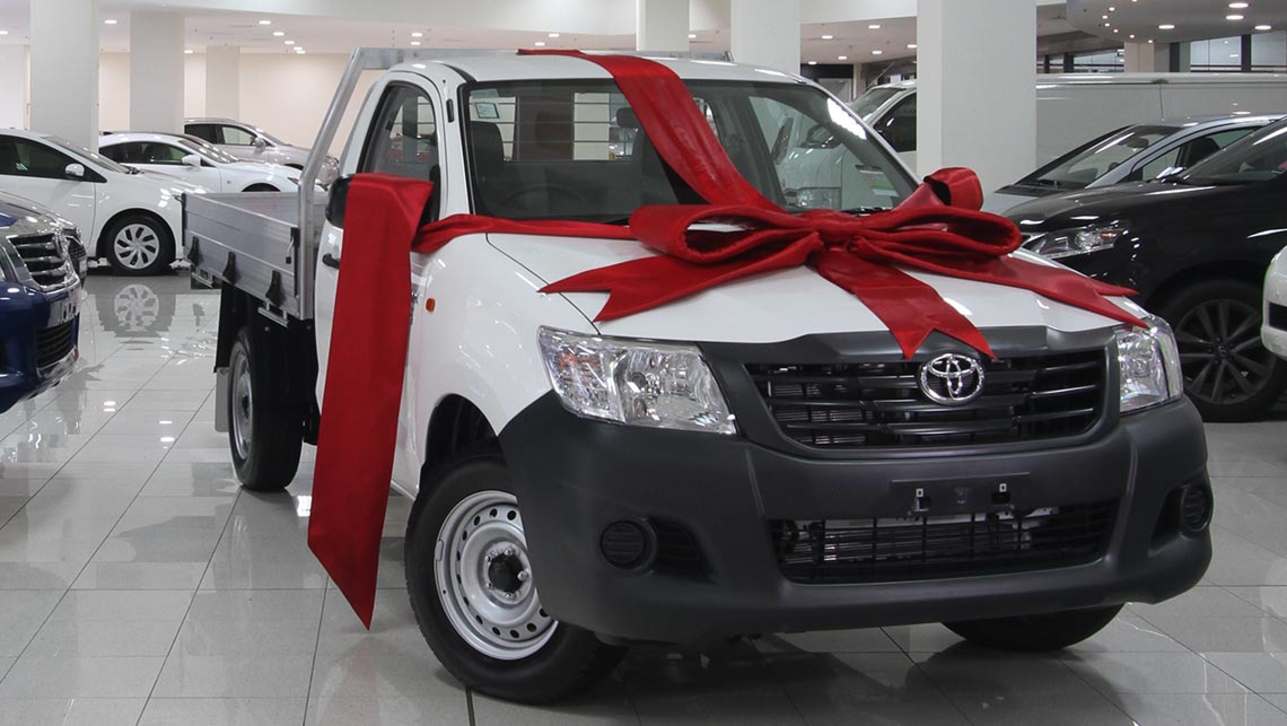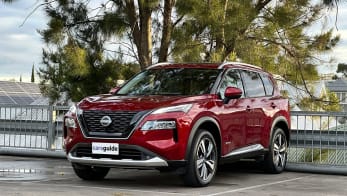The Treasurer put new work vehicles on the Budget agenda — here are the picks of the $20K bunch.
Are you still trying to figure out how the Budget tax changes affect your small business — and what it might amount to in savings on a new car? You're not alone.
It's 10 days since Joe Hockey allowed immediate tax deductions for small businesses or sole traders for assets costing up to $20,000. The car industry is still grappling with the fine print and trying to establish which vehicles are eligible.
Is the maximum amount on an eligible vehicle $20,000 plus on-road costs, $20,000 drive-away, or more?
What happens if you pay the difference on the amount on a vehicle that costs more than $20,000?
With some help from those in the know we've managed to zero-in on the best and worst case scenarios, and sort fact from fiction.
Assets acquired and installed ready for use between 7.30pm 12 May 2015 and 30 June 2017
For starters, the government will not write you a cheque for $20,000 if you buy a new car, as some believe.
The changes also do not apply to private buyers, who typically account for more than half of all new-car sales.
Further, the criteria for small businesses and sole traders are tougher than many may realise — and the deal doesn't last forever.
The $20,000 threshold for goods that can be used as an immediate tax deduction (rather than spread over eight financial years, in the case of motor vehicles) applies to "assets acquired and installed ready for use between 7.30pm 12 May 2015 and 30 June 2017".
Eligible businesses must turn over more than $20,000 and less than $2 million annually, the real estate assets of the business must be worth more than $500,000, other assets must worth be more than $100,000, and the business must have made a profit in three of the past five years. The aim is to prevent rorting.
The amount each small business or sole trader may be entitled to as a tax refund will vary — even on identical vehicles — because the purchase price of the asset is counted against taxable income.

In a best-case scenario, sole traders in the top tax bracket of 47 cents in the dollar could be eligible for a refund of up to $8500 on a $20,000 vehicle used exclusively for work. Small businesses taxed at 30 per cent could pocket up to $5400 — providing quarterly tax instalments or pay-as-you-go taxes are up to date.
"If people are rushing to buy a new car they need to consider the non-commercial loss provisions which apply to their business," says chartered tax adviser Amar Deep.
In simpler terms, he says: "If your business is making a loss, you can't use that loss to offset your employment income and get a refund from the Tax Office."
Meanwhile, dealers are scrambling to find out which vehicles fall under the $20,000 threshold, and how far customers can stretch the limit.
The ATO says the asset must cost not a dollar more than $20,000.
However, that amount is excluding GST, meaning the most basic $20,900 drive-away trayback utes are eligible.
Further, given there is no GST on registration or stamp duty, an eligible vehicle in theory could be priced between $21,500 and $22,000 drive-away, which will bring in some small vans from Citroen, Renault and Volkswagen.
You wouldn't be able to buy, for example, a $60,000 SUV and submit three $20,000 tax invoices
Accessories fall into a grey area. For example, experts we've spoken to say you could in theory add a larger ute tray or other accessories — taking the vehicle beyond the $20,000 threshold — providing they were on a separate tax invoice.
If the dealer was prepared to split the invoice, already a common practice with some fleet leasing arrangements (where the individual and the employer pick up different parts of the tab), then you could arguably drive away in a $30,000 ute or van loaded to the hilt.
But you wouldn't be able to buy, for example, a $60,000 SUV and submit three $20,000 tax invoices to offset against your taxable income. Work vehicles dearer than $20,000 will be deductible over eight years, as per usual.
The $20,000 threshold applies to any goods, so it doesn't even have to be a new car. For example, it can be a used vehicle, or a small hatchback for a pizza delivery business or security company.
But the amount you may get as a tax deduction depends on how much the vehicle is used for work and what your (or your company's) taxable income amounts to.
Understandably, the industry has welcomed the Budget initiative, not least because it has jump-started showroom traffic before June, historically the biggest month for new-car sales.

"We applaud the government's small business initiative," says Patrick Tessier, chief executive officer of the Australia Automotive Dealer Association, representing 4000 franchises.
"We believe small business needs a stimulus and we think this will have an immediate benefit.
"Our dealers are already reporting a spike in interest in showroom traffic and phone calls. There is a lot of inquiry about what these changes mean and what savings might be available."
The dealer group also predicts car companies will react quickly and introduce models in June to capitalise on the new arrangements.
"Some brands will be able to do more than others," Tessier says. "I think we will see more cars limbo closer to that $20,000 mark in June."
Popular work vehicles and the deduction to which sole traders and small businesses may be entitled.
Vehicle's drive-away price and potential claim
Toyota HiLux ute: $20,990 drive-away, $5400 to $8500
Mitsubishi Triton ute: $20,990 drive-away, $5400 to $8500
VW Caddy van: $22,990 drive-away, $5400 to $8500
Renault Kangoo van: $19,990 drive-away, $5400 to $8500
Kia Cerato hatch or sedan: $19,990 drive-away, $5400 to $8500
Toyota Yaris automatic: $17,990 drive-away, $5397 to $8455
Nissan Micra automatic: $17,602 drive-away, $5280 to $8272
Honda Jazz manual: $16,990 drive-away, $5097 to $7985
Suzuki Celerio automatic: $13,990 drive-away, $4197 to $6575
Hyundai i20 manual: $12,990 drive-away, $3897 to $6105
Figures are a guide only and apply to vehicles solely used for work. Consult a tax professional for an accurate estimate on any new vehicle you may consider purchasing.



.jpg)







.jpg)



.jpg)




.jpg)





-AN10, AN20-series-2005-2011(2).jpg)




Comments